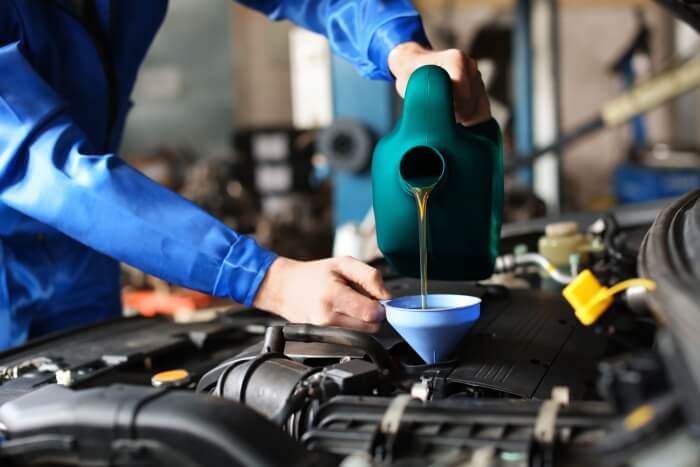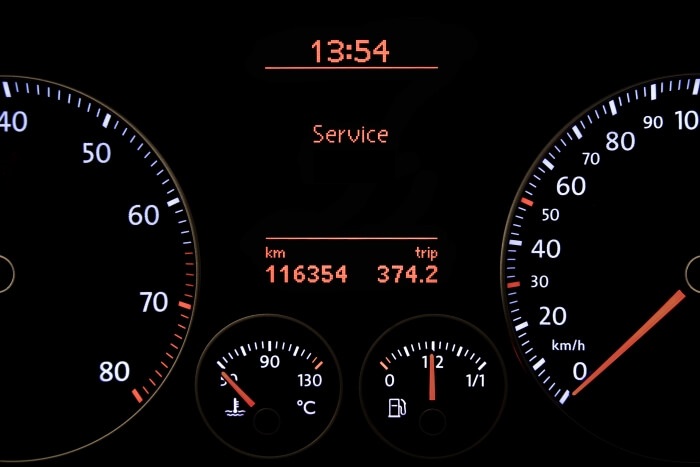


Oil consumption for cars - Causes and solutions
The moving parts in the engine of a car, such as pistons and valves, are never one hundred percent leakproof. It is therefore quite normal that a small proportion of engine oil is fed into the fuel combustion process. The engine oil also burns. In some cases, the engine oil also evaporates when it hits the hot cylinder surfaces. The residues are discharged via the exhaust system. However, in engines that function faultlessly, the amount of oil burned as a result is only a few milliliters per 1000 kilometers of driving distance.
How can the oil consumption of cars be calculated?
As a rule of thumb, modern passenger cars lose a maximum of 0.05% to 0.5% oil per litre of fuel consumed. So if you calculate with 10 litres of fuel consumption per 100 kilometres for a sporty car, 100 litres of fuel are needed for 1000 kilometres. 0.05% of 100 litres results in 50 ml oil consumption for 1000 kilometres. This calculation can be adapted accordingly with other values. However, the calculation example given already assumes a comparatively high consumption.
What is the average oil consumption of cars?
It is not possible to make a general statement on this. The oil consumption of cars can vary from a few millilitres to 1.5 litres per 1000 kilometres. This is related to the way the engines work, the owner's driving style and climatic influences.
For example, diesel vehicles generally consume more oil than gasoline engines. Wankel engines also require more oil than petrol or diesel engines due to the greater clearance in the engine. If the driver of the car drives long distances at high or low revs, more engine oil is consumed. When driving in winter, the engine takes longer to reach operating temperature. This increases the oil consumption, too. In addition, there are other factors that can increase or decrease oil consumption in cars. As a rule, the OEM specifies in the owner's manual which oil consumption is appropriate for a vehicle and when the oil consumption becomes too high. Then there is possibly a defect in the vehicle.

What are the reasons for high oil consumption in cars?
As already mentioned, many factors can increase the oil consumption of cars:
- Sporty driving style
- High temperatures inside the engine
- Defects in the car (hairline crack in the engine, worn gaskets, broken injection pump, etc.)
- Use of the wrong engine oil contrary to the OEM approvals
- Use of poor quality engine oils with high evaporation loss
- Non-compliance with the prescribed replacement intervals
How can increased oil consumption in cars be stopped?
We have listed below some tips for you that you should follow to keep the oil consumption of your car low.
- Take care of your car and always supply it with the appropriate oil, which is in accordance with the OEM specifications!
- Check the oil level of your car regularly and top up oil outside the service intervals if necessary!
- Observe the prescribed replacement intervals for your vehicle!
- Increase the cleanliness of the engine by flushing the engine, e.g. before changing the oil, and thus remove stubborn deposits in the engine compartment!
- In case of oil loss (strong drop of the oil level, formation of oil pools under the vehicle or flashing of warning lights on the board computer) please visit a workshop as soon as possible! Then a defect in the vehicle can be assumed.

